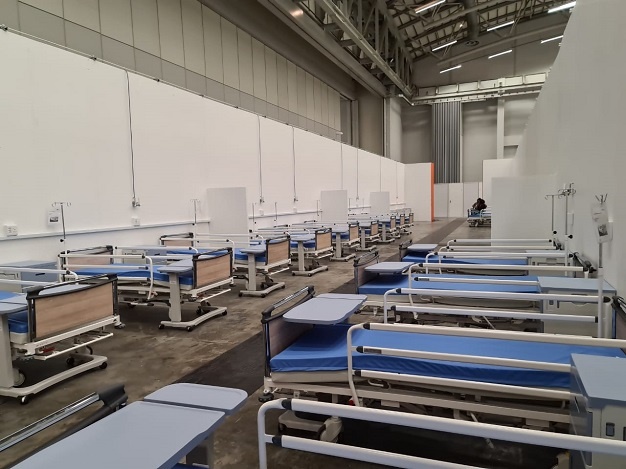


The Hospital of Hope at the Cape Town International Convention Centre.
- Hospitalisation and deaths due to Covid-19 appeared to be stabilising in the Western Cape.
- Health HOD Dr Keith Cloete warned that it was early days and uncertainty remained.
- He said absolute vigilance was essential as the province expected its peak end of July.
Western Cape health officials are cautiously optimistic about the trajectory of Covid-19 in the province but say they are not “resting on their laurels” as they continue to monitor the virus’s progression.
This was according to the provincial department head, Dr Keith Cloete, who briefed the Western Cape legislature on their response to the disease on Wednesday.
“It is early days but really looking like hospitalisation and deaths are stabilising and even potentially showing an early decline in the Western Cape,” he told the provincial ad-hoc committee on Covid-19.
He cautioned that uncertainty remained, both statistically in the models, and more generally in key assumptions, such as the use of Dexamethasone.
While many sub-districts of the Cape Metro were at the advanced community transmissions stage, many parts of the province were early on in the pandemic trajectory.
Cloete said absolute vigilance remained essential.
Premier Alan Winde previously indicated that the peak in the Western Cape seemed to be later than was originally projected and was likely to take place from the end of July to beginning of August.
READ | Lockdown taking its toll on South Africans’ emotions, finances and food supply
This peak was also flatter than originally projected.
Cloete said the department remained under pressure for critical care beds in the public sector. This was essentially due to staff shortages.
ICU beds in the private sector were already under pressure and experiencing a high occupancy rate.
Using the “bed bureau system” allowed ambulances to know immediately where there was capacity and also assisted in avoiding unnecessary movement of patients.
ALSO READ | Scientists found who may have triggered the coronavirus crisis in Cape Town
Actively managing people with chronic diseases was a big focus for the province, said Cloete.
As an example, Covid-19 positive patients with poorly controlled diabetes and other risk factors were immediately admitted to the Hospital of Hope at the Cape Town International Convention Centre.
Staff infection and anxiety remained key challenges.
Cloete said the department was engaged in a number of processes to support its staff.

